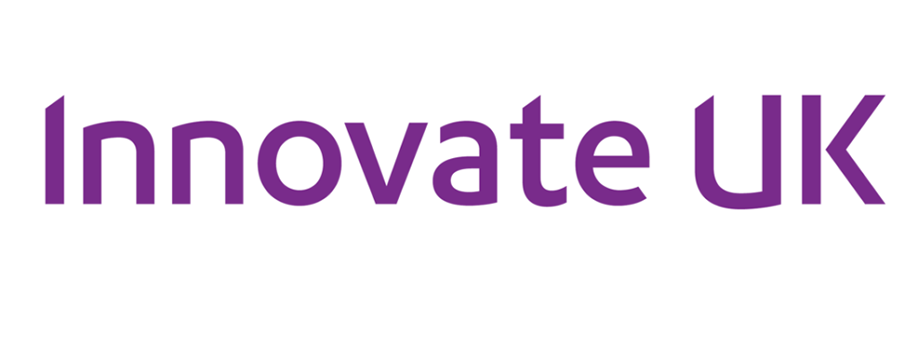Webinar Round-Up: UK ophthalmologists present on their innovations of amniotic membrane application in the management of ocular surface disease sponsored by NuVision Biotherapies Ltd.
The webinar launched Tuesday 2nd November, 7PM GMT with the introduction of Mr. Mohamed Elalfy, a consultant ophthalmic surgeon at the Queen Victoria Hospital NHS Trust and Maidstone and Tunbridge Wells NHS Trust, who chaired the meeting and announced the theme of the teaching session.
First to take to the virtual floor was Mr. Vito Romano, a consultant ophthalmic surgeon, previously based at the Liverpool University Hospitals NHS Trust and now based in Milan, Italy. Mr. Romano’s talk titled the “use of amniotic membrane in corneal perforation” began noting the background details of corneal perforation, which can arise due to range of factors including infection, inflammation, or disease of various aetiologies, such as endophthalmitis, glaucoma or cataract. Mr. Romano’s team have developed a technique which involves placing a multilayer amniotic membrane graft into the perforation, covering it with a layer of cyanoacrylate glue, and then placing an amniotic membrane patch over the periphery of the wound to protect the graft from movement or displacing the glue layer. The patient would then have a bandage contact lens (BCL) of 20-22 mm in diameter placed on the ocular surface. Mr. Romano presented a range of slit lamp and OCT images of a patient treated with this technique to highlight its success. He emphasised the requirement to act quickly when treating corneal perforations and stated that having malleable dried amniotic membrane matrix, such as Omnigen®, on the shelf is a benefit. Mr. Romano noted that patients who can be treated with a contact lens and dried amniotic membrane is acceptable for a specific group of patients.
The second talk was given by Mr. Nick Kopsachilis, a consultant ophthalmic surgeon at the Kent and who presented a two-fold presentation titled “use of Omnigen in a complex ocular surface patient and in a novel sutureless pterygium technique”. In the first part of the talk Mr. Kopsachilis presented a case of a 73-year-old patient with a persistent epithelial defect, with corneal thinning and pending perforation. Mr. Kopsachilis and team treated the patient with an inlay amniotic membrane graft paired with a bandage contact lens and presented the OCT images of the healing outcome. This was a novel, glue-less, and sutureless technique that was performed in an outpatient setting. Secondly, Mr. Kopsachilis detailed the treatment of pterygium in patients with a novel surgical technique, which is both sutureless and glue-less. It involves transplanting amniotic membrane onto the bare sclera left due to the resected pterygium and placing a bandage contact lens to protect the wound. Mr. Kopsachilis presented the results of a series of 63 patients.
The final speaker was Dr. Sundas Maqsood. In the talk named “use of human amniotic membrane derived dry matrix in ocular surface disorders”, she began noting the background of amniotic membrane and followed up with details of a case series of > 90 patients of various aetiologies, who were treated with outpatient amniotic membrane to aid the resolution of persistent epithelial defects. Dr. Maqsood closed her talk speaking about the ongoing, new research that herself and the team across Maidstone and Tunbridge Wells NHS Trust and the Queen Victoria Hospital NHS Trust have been conducting. This upcoming research is looking at the treatment of patients with a range of inflammatory disorders and Dr. Maqsood is also working with AOS – Advanced Ophthalmic Solutions (https://aos-hub.com), a specialised imaging company to image and track the patients outcomes.
After this, all speakers were involved in a question-and-answer session led by Mr. Elalfy on various aspects of their research. The webinar was sponsored by NuVision Biotherapies Ltd (www.nu-vision.co.uk) who manufacture Omnigen, a human-derived amniotic membrane tissue that is preserved using the Tereo® manufacture process. This allows the amniotic membrane to be preserved as a dry membrane that can be stored between 2 – 25oC and can be rehydrated in vivo. Amniotic membrane is transplanted in ophthalmic subgroups due to its barrier properties that support the natural healing of the ocular surface.
NuVision would like to send their warmest thanks to all speakers and attendees for joining and providing an interesting and fruitful environment to discuss the recent innovations in amniotic membrane use. To catch-up on all aspects from the webinar, please contact support@nu-vision.co.uk who will gladly provide access to the video recording of session.
For more information on Mr. Romano’s perforation technique, please see: https://pubmed.ncbi.nlm.nih.gov/33941874/. For further information on Mr. Kopsachilis’ pending perforation treatment, please see: https://pubmed.ncbi.nlm.nih.gov/34513346/. To read more regarding the use of amniotic membrane in the treatment of persistent epithelial defects, see Dr. Maqsood’s published work: https://pubmed.ncbi.nlm.nih.gov/34093006/.
Queen Victoria Hospital NHS Trust
The Ophthalmology and Corneoplastic unit at Queen Victoria Hospital is a specialist and tertiary referral centre for complex corneal conditions and oculoplastics. This unit is a high‑profile and technologically advanced department that delivers high quality care in its sub‑specialities with the drive to set standards of care for the UK and Internationally.
Continue reading:
www.qvh.nhs.uk/our-services/head-neck-eyes-dental/corneoplastics-and-ophthalmology/
Liverpool University Hospitals NHS Trust:
Ophthalmology treatments are provided at St Paul’s Eye Unit which is part of the Royal Liverpool Hospital. They provide a world renowned ophthalmic service, dealing with the diagnosis, treatment and prevention of diseases of the eye and visual system, for the community of Liverpool and national and international referrals.
Continue reading:
https://www.rlbuht.nhs.uk/departments/medical-specialisms/eyes-st-pauls-eye-unit/
East Kent Hospitals NHS Foundation Trust:
Kent and Canterbury Hospital provides a range of elective and planned care as well as treatment for minor injuries and illness. The trust has a comprehensive team of experts from all over the UK and worldwide working with state-of-the-art equipment to ensure it provides a service that is worthy of the community it serves. Their passion and fight for sight are at the forefront of innovation.
Continue reading:
www.ekhuft.nhs.uk/patients-and-visitors/services/ophthalmology-eye/
Maidstone and Tunbridge Wells NHS Trust
Maidstone and Tunbridge Wells NHS Trust is the largest specialised eye unit in the South-East of England and serves a total population of 1 million. There is a range of ophthalmic specialities based at the Trust including Cornea, Glaucoma, Retina, Cataract, Paediatric and Neuro-ophthalmology benefits.
Continue reading:
NuVision Biotherapies
Based in MediCity, Nottingham, NuVision Biotherapies is a regenerative medicine company spun out from the University of Nottingham. NuVision was established in 2015, founded on investment from Mercia Fund Management, to develop and bring to market cutting edge, regenerative therapies.
About Omnigen
Omnigen is a patented, dry preparation of human amniotic membrane, made from the sac surrounding the baby during pregnancy. The Tereo manufacturing process, developed at the University of Nottingham’s Academic Ophthalmology department, transforms this waste product of birth into a sterile and stable dry regenerative therapy that can be easily shipped and accessed anywhere in the world. Omnigen is applied directly to the wound dry and is rapidly and effectively rehydrated using surrounding moisture to immediately reactivate the beneficial properties to promote tissue repair and healing in a variety of ways. The product represents a unique and versatile “off-the-shelf” regenerative product, and it may be stored long-term. The Tereo process preserves the wound healing action and provides surgeons with an effective sight saving therapy that could provide a meaningful benefit to patients, including those suffering from ocular surface disease and conditions with unmet medical need.
About OmniLenz
OmniLenz is a bespoke BCL designed to apply and hold Omnigen at the ocular surface without the need for sutures or surgery. OmniLenz is manufactured exclusively for NuVision by Menicon, UK. Omnigen can be applied by OmniLenz using a simple 4 – 6 minute procedure in an outpatient setting. The decision to apply Omnigen to the ocular surface using OmniLenz is at the discretion of the clinician.
Continue reading:
www.nu-vision.co.uk





